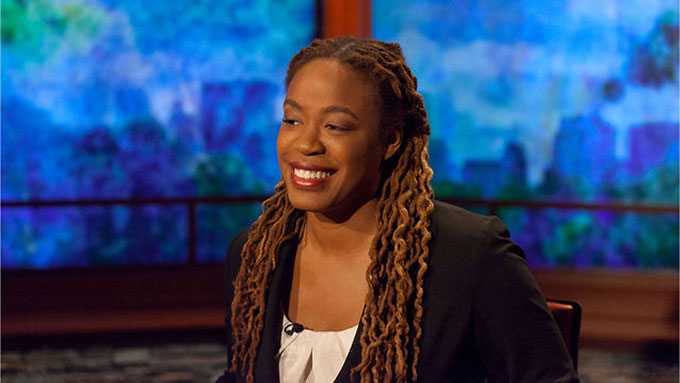Heather McGhee: We Can Control Our Economy
by George Sax

Heather C. McGhee came to Buffalo this week to tell area residents that the US political economy really isn’t like the weather. The vice-president of policy and outreach at Demos, a liberal public policy and research organization in Washington, DC, had a substantial point beyond this obvious contrast: The American economy is not a system operating under invariant natural laws. Rather, it’s a system that’s been constructed by human beings, and “it’s not outside our control.” But, she said, “we talk about it as if it’s a large natural phenomenon, like the weather.”
McGhee was at Buffalo’s Asbury Hall Tuesday night to address an audience of 70 to 80 people brought together by Open Buffalo, a coalition of four community non-profits—Partnership for the Public Good (PPG), PUSH, Coalition for Economic Justice, and VOICE-Buffalo—that recently won a preliminary planning grant from international financial ace George Soros’ Open Society Foundation. Open Buffalo is one of eight groups competing for five to eight democratic-reform implementation grants of $1 million annually for from three to 10 years. Applications, due the last week of September, are required to include a detailed plan for effecting democratic economic and political reform in an applicant’s region.
McGhee called the coalition’s initial selection “an incredible process this city and region have an opportunity to participate in.”
Tuesday’s meeting had something of the atmosphere of a combined political convention, a fair, and a leftist revival meeting. Before and after the main address, musical performers took to the hall’s stage, as eight or nine groups at tables promoted causes ranging from the anti-fracking movement to racial justice.
McGhee started out by conceding she is a lawyer, not an economist, and she’d had to study economics to understand the inadequacies of the natural-law metaphors neoclassical economists have used to justify the prevailing social order, to “unlearn the myths we all carry around.” A better metaphor, she suggested, would be think of the US economy as a game in which “banking, business, and political players tweak the rules to favor some teams’ success…What matters most is what the rules are.”
She contrasted the present period in which social elites’ wealth is increasingly concentrated and the middle class is economically squeezed and politically marginalized, with the post-World War Two era when the middle class was created, “a revolutionary invention.” A growing number of families then got “the freedom to meet [their] needs and fulfill [their] dreams.” But over the last 30-40 years, “a big shift” changed the rules to favor the small minority of the population at the top. There were “fundamental changes in the rules that guide our economy.” “Big business,” she offered, got organized to “change the power dynamics” in the halls of government.
McGhee’s address neatly summarized important trends that produced the rising inequality and hardship, but she also lapsed into perhaps hard-to-avoid simplifications and exaggerations at a few junctures. The formerly vital, expansive middle class she extolled was never as large or secure as nostalgists sometime seem to believe. It largely excluded racial minorities and a lot of whites, in the Southeast and small-town America, for example. (Thirty-five years ago, economist Richard Parker wrote a book called The Myth of the Middle Class.)
But McGhee’s indictment of unwholesome historical developments was scarcely unfounded and her insistence that popular political action could begin to challenge these harmful changes was persuasive. An agenda that combined a rising minimum wage, labor law reform, restriction of corporate- favoring international trade agreements and campaign finance reform could arrest and turn this recent history, she told the audience. In Buffalo, McGhee observed, grassroots politics could avert the skewed benefits of gentrification, including the pursuit of “[architectural] beautification at all costs,” rather than broader-based improvements.
After McGhee’s talk, Sam Magavern, co-director of PPG, said the coalition’s Open Society application, whose writing he will supervise, will stress goals that would require popular mobilizations. He noted that three of the coalition member groups are popularly based, while PPG is “researchy.” Regardless of the outcome of the competition, he said, the agreed-upon agenda would be pursued.
blog comments powered by Disqus|
Issue Navigation> Issue Index > v12n30 (Week of Thursday, July 25) > The News, Briefly > Heather McGhee: We Can Control Our Economy This Week's Issue • Artvoice Daily • Artvoice TV • Events Calendar • Classifieds |









 Current Issue
Current Issue